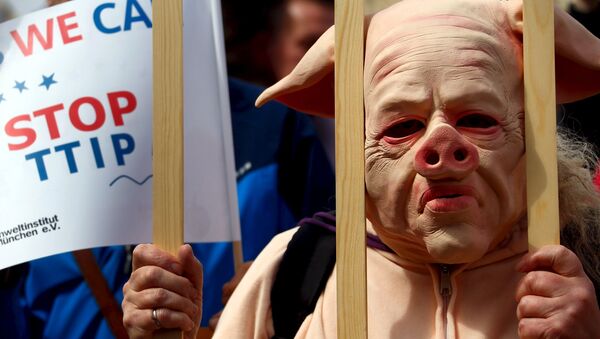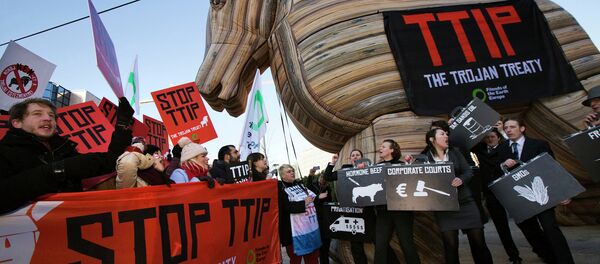"The aim is to create an economy of big corporations… The aim of this Treaty is to privatize the services of culture, sport, waste disposal, water… among many other things."
The declared goal of the TTIP is to open up the markets of the European Union and the United States to each other to allow for the easier flow of goods and services across the Atlantic. The treaty's opponents say it threatens the sovereignty of both sides.
"The information we have about the negotiations suggests that it [the TTIP] will have a direct [negative] impact on the [principles of] democracy, popular sovereignty and the welfare state."
Lores, who is a member of the Spanish Socialist Worker's Party (PSOE), criticized both the content of the TTIP and the secrecy in which it is being negotiated.
"To me it seems indecent that these talks go on in such secrecy, it should have been a democratic process."
Lores noted that some 10,000 municipalities in Germany, more than 250 in Austria and more than 100 in France also did not wanted the TTIP to apply to them, adding that the number of TTIP opponents in Spain would grow as more people familiarize themselves with the Treaty.
According to Lores, many municipalities in Spain are now beginning to "rethink the system" and study ways to re-nationalize services essential to the public – such as water and energy, starting down the road to a more social economy.




